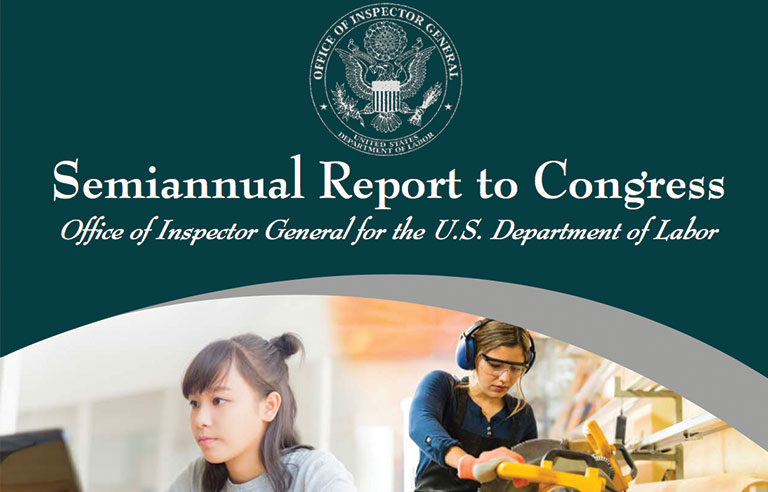OIG report: Clarification of MSHA’s mine closure authority requires legislation

Washington — Legislative action is needed to clarify the Mine Safety and Health Administration’s authority to issue mine closure orders, the Department of Labor’s Office of Inspector General states in its semiannual report to Congress.
The report, released May 29, covers OIG audits and investigations in the six-month period that ended March 31. It states that Section 103(k) in the Mine Safety and Health Act of 1977 grants the secretary of labor or an authorized representative the authority to issue mine closure orders when deemed necessary to protect miners.
However, the report also states that two decisions from the Federal Mine Safety and Health Review Commission place limits on MSHA’s authority to issue those orders, and that those decisions show “the need for legislative action.”
OIG expresses “significant concerns” about the agency’s:
- Lack of a “consistent approach to logging, assessing and responding” to complaints regarding hazardous mine conditions.
- Ability to focus resources on the most hazardous mines because of underreporting of injuries and illnesses by mine operators.
- Oversight of coal mine operators’ emergency response plans.
Regarding OSHA, OIG states in the audit that it is concerned about correction and abatement of hazards – especially in the construction industry. The Inspector General’s forthcoming discretionary audits for the agency are related to complaint investigations, the processes of issuing and managing regulations, deterrent effects of penalties and publicized inspection/penalty results, risk-based targeting, and whether appropriate procedures are followed to issue guidance documents.
MSHA’s upcoming discretionary audits will look at citations, civil monetary penalties and oversight of mine rescue teams.
Discretionary audits are conducted using funds that remain after resources are committed to mandatory audits.
Post a comment to this article
Safety+Health welcomes comments that promote respectful dialogue. Please stay on topic. Comments that contain personal attacks, profanity or abusive language – or those aggressively promoting products or services – will be removed. We reserve the right to determine which comments violate our comment policy. (Anonymous comments are welcome; merely skip the “name” field in the comment box. An email address is required but will not be included with your comment.)

